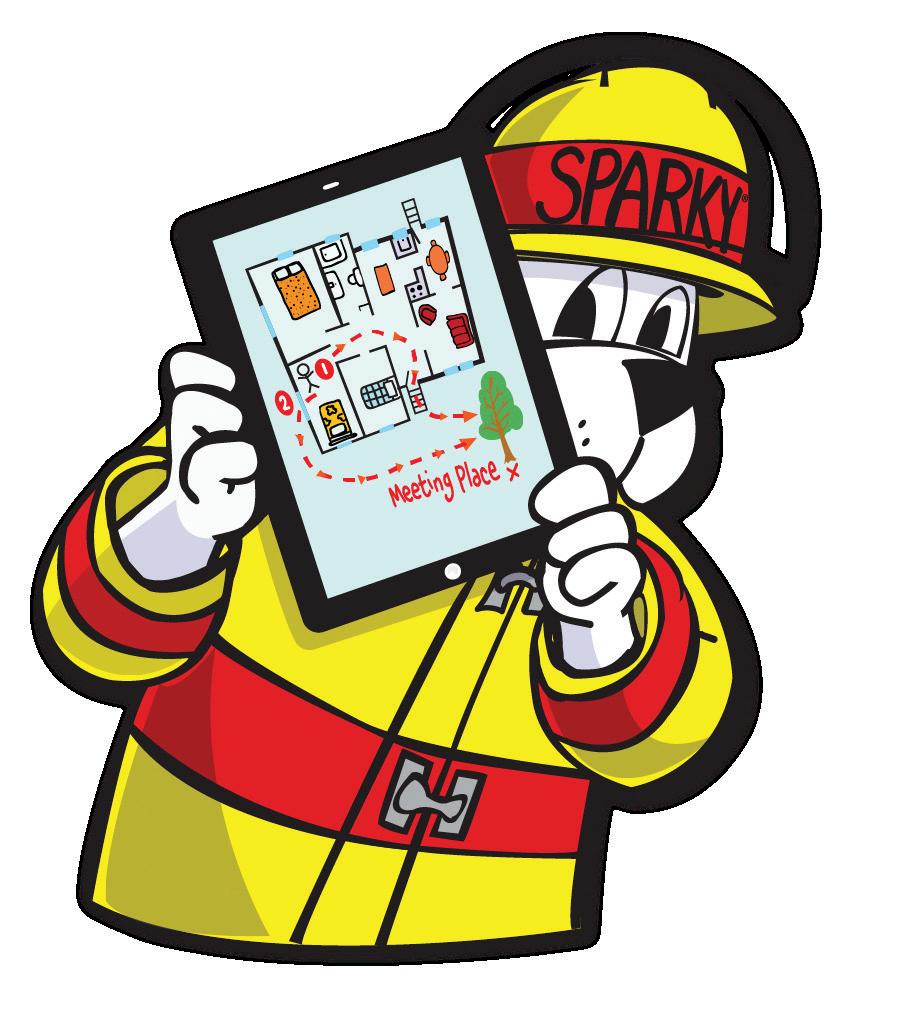
4 minute read
SAFETY TIPS FROM FIRE RESCUE
Fire Prevention Week is October 8-14 and Palm Beach Gardens Fire Rescue wants to encourage you to take the following proactive measures to prevent fires and protect your lives, homes and community.
Smoke Alarms
• Install smoke alarms in every bedroom. They should also be in hallways that connect sleeping areas and on every level of the home, including basements. Follow the manufacturer’s instructions for placement and mounting height or call Fire Rescue for help.
• Test all smoke alarms at least once a month by pressing the test button to be sure the alarm is working properly. If your alarms require a 9-volt battery, make sure to replace the battery every 6 months.
Candle Safety
• Consider using battery powered or flameless candles. They are much safer.
• If you do burn candles, make sure that you…
- Blow out all candles when you leave the room or go to bed.
- Keep candles at least 1 foot away from anything that can burn.
Carbon Monoxide Safety
• Place carbon monoxide detectors in hallways that connect sleeping areas with at least one detector on each level of the home. Follow the manufacturer’s instructions for placement and mounting height.
• Generators should be used in a well-ventilated location outdoors away from windows, doors and vent openings.
• Do not run vehicles or other fueled engine or motor indoors, even if garage doors are open.
Cooking
• Do not leave stove unattended while cooking and turn it off if you must leave the kitchen.
• If you have a small grease fire on the stovetop, smother the flames by sliding a lid over the pan and turning off the burner. Leave the pan covered until it is completely cooled. If you have any doubt about fighting a small fire, get out and call 9-1-1.
Fire Extinguishers
Have a multipurpose, 2-A: 10-B:C, fire extinguisher on each floor of the home. Learn the proper use and maintenance for fire extinguishers.
CLOSE BEFORE YOU DOZE!
A closed door can dramatically slow the spread of fire, toxic smoke, and extreme heat. During a fire, a closed door can be the difference between 100° and 1000°, so make sure you close those bedroom doors at night.
Home Fire Escape Planning
Make a home fire escape plan. Draw a map of your home showing all doors and windows. Identify two ways out of each room. Discuss the plan with everyone in your home. Have an outside meeting place (like a tree, light pole or mailbox) a safe distance from the home where everyone should meet.
Practice your home fire drill at night and during the day with everyone in your home, twice a year. Practice using different ways out.









